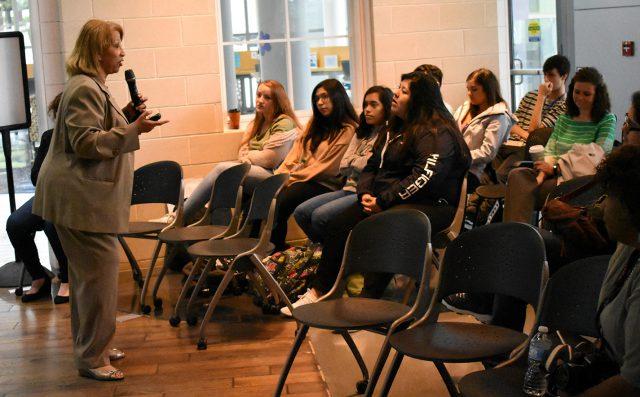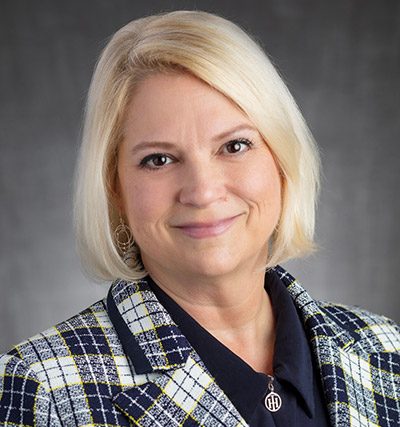By Mykel Jones/reporter
Seminar calls to lift other women up, not tear them down
As part of Women’s History Month, a Dallas business leader spoke to TR students about ways women can work to empower themselves and one another.
South Dallas Business and Professional Women’s Club president June M. Johnson discussed her experience in assisting women to help them thrive, grow and learn to accept themselves as they are.
“Women have different views of themselves,” she said. “Several women today work so hard to be something they are not when being themselves is the key to everything.”
Johnson talked about five words women should focus on when trying to elevate one another: amplify, repost, nominate, invite and recommend.
Women should amplify one another and raise one another up instead of putting each other down, she said. Women can share information to help each other pursue goals. She said women need to learn to nominate one another.
“What I mean by nominate is there should be women you can nominate in your life that have done good deeds,” Johnson said.
Johnson encouraged women to invite one another into their lives. As women, it’s important because women sometimes leave other women out, she said.
Lastly, women should recommend one another when opportunities arise such as a job or leadership position.
“Women bettering the community is success in many eyes,” Johnson said.
She gave examples of women who have become historical heroes, like former first lady Eleanor Roosevelt who was a politician and activist; Amelia Earhart, the first female to fly solo across the Atlantic Ocean; and civil rights activist Rosa Parks.
Twenty-first century heroes include Lilly Ledbetter, plaintiff in an employment discrimination case that led to the Lilly Ledbetter Fair Pay Act of 2009 and former first lady Michelle Obama who raised awareness about the dangers of obesity and promoted healthy nutrition.
Johnson gave examples closer to home as well.
“Erma Johnson Hadley was the first African-American woman to become Tarrant County College chancellor,” Johnson said.
Throughout history, women have often been treated like slaves and still are in some parts of the world, Johnson said.
“This doesn’t just go for African-Americans but for women of all races,” she said.
































